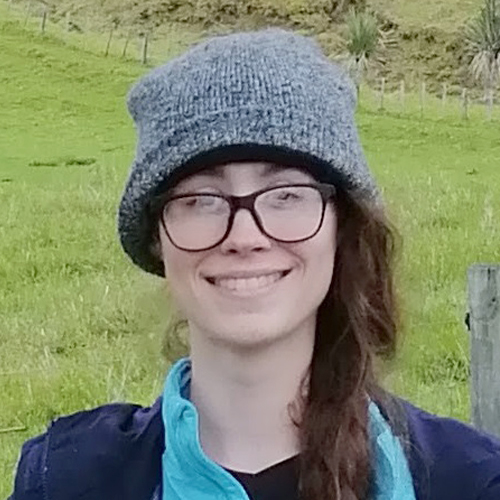Theo O'Malley

Guest
Lise Meitner Group 'Technological Primates'
Max Planck Institute for Evolutionary Anthropology
Deutscher Platz 6
04103 Leipzig
phone: +49 (0) 341 3550 227
e-mail:
theo_o_malley@[>>> Please remove the text! <<<]eva.mpg.de
Research Interests
I have a background in behavioral ecology and conservation. During my PhD at the University of Auckland, I investigated the movement ecology and device interactions of invasive ship rats (Rattus rattus) and Australian brushtail possums (Trichosurus vulpecula). This was in support of Predator Free 2050: an ambitious government initiative to eradicate invasive rats, possums, and mustelids from the New Zealand mainland. Through this work, I employed and developed a variety of behavioral and spatial analytical techniques for wild populations. I also gained a keen interest in animal personalities, which are of growing importance in conservation and animal behavioral at large.
While my formal training is predominantly in behavioral ecology, I have a long-held passion for animal culture. This includes tool use, language, and associated social structures. I aim to combine these influences in my new role as a postdoctoral researcher in Dr. Lydia Luncz’s lab: the Technological Primates Research Group at the Max Planck Institute for Evolutionary Anthropology. I hope to identify cognitive abilities that have coevolved with (and may be necessary for) tool use, and how this coevolution may be influenced by environmental or phylogenetic factors. Key targets include spatiotemporal and social cognition. This research will draw on experience from my PhD by inferring cognitive abilities from natural and experimentally manipulated movement patterns of wild primate populations. Target species include long tailed macaques, capuchins, and chimpanzees. In addition to this work, I am interested in how individuals may differ in their propensity for innovation, transmission, and retention of cultural behaviors, such as due to personality influences.
Publications
Past publications are made under my former name Tess O’Malley.
O’Malley, T.D.R., Stanley, M.C., Sjoberg, T., Russell, J.C. (In preparation) Invasive species as models for population disruption: home ranging in brushtail possums (Trichosurus vulpecula).
O’Malley, T.D.R., Stanley, M.C., Latham, C.M., Sjoberg, T., Russell, J.C. (In preparation) Density or design? Factors influencing trap capture success in an invasive marsupial.
O’Malley, T.D.R., Stanley, M.C., Russell, J.C. (2022) Assessing two different aerial toxin treatments for the management of invasive rats. Animals, 12: 300.
DOI
O’Malley, T.D.R., Latham, C.M., Sjoberg, T. (2022) Spatial detection parameters for possums (Trichosurus vulpecula) at low density, Contract Report LC4258. Manaaki Whenua Landcare Research, Lincoln, New Zealand.
Presentations
O’Malley, T.D.R., Stanley, M.C., Russell, J.C. Reviewing two years of research in a possum elimination zone: Novel tools, movement patterns, and the importance of individual variation. Australasian Wildlife Management Society Conference, Nov 2022, Napier, New Zealand.
O’Malley, T.D.R., Stanley, M.C., Russell, J.C. Using invasive species to investigate movement patterns following population disruption: The common brushtail possum. Ecological Society of Australia and Society for Conservation Biology Oceania Joint Conference, Nov 2022, Wollongong, Australia.
O’Malley, T.D.R., Stanley, M.C., Russell, J.C. Possum home ranging under intensive management: The importance of habitat and sex. New Zealand Ecological Society, Nov 2021, online.
O’Malley, T.D.R., Stanley, M.C., Russell, J.C. Towards a possum free Taranaki. Sanctuaries of New Zealand Workshop, Aug 2021, Raetihi, New Zealand.
O’Malley, T.D.R., Stanley, M.C., Russell, J.C. The possums of Pukeiti. Puke Ariki Public Science Outreach, Nov 2020, New Plymouth, New Zealand.
O’Malley, T.D.R., Stanley, M.C., Russell, J.C. Developing a novel zero-density management strategy for possums: Initiatives for Predator Free 2050. New Zealand Ecological Society, Dec 2019, Lincoln, New Zealand.